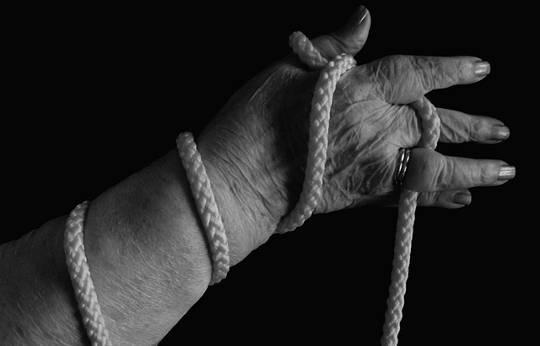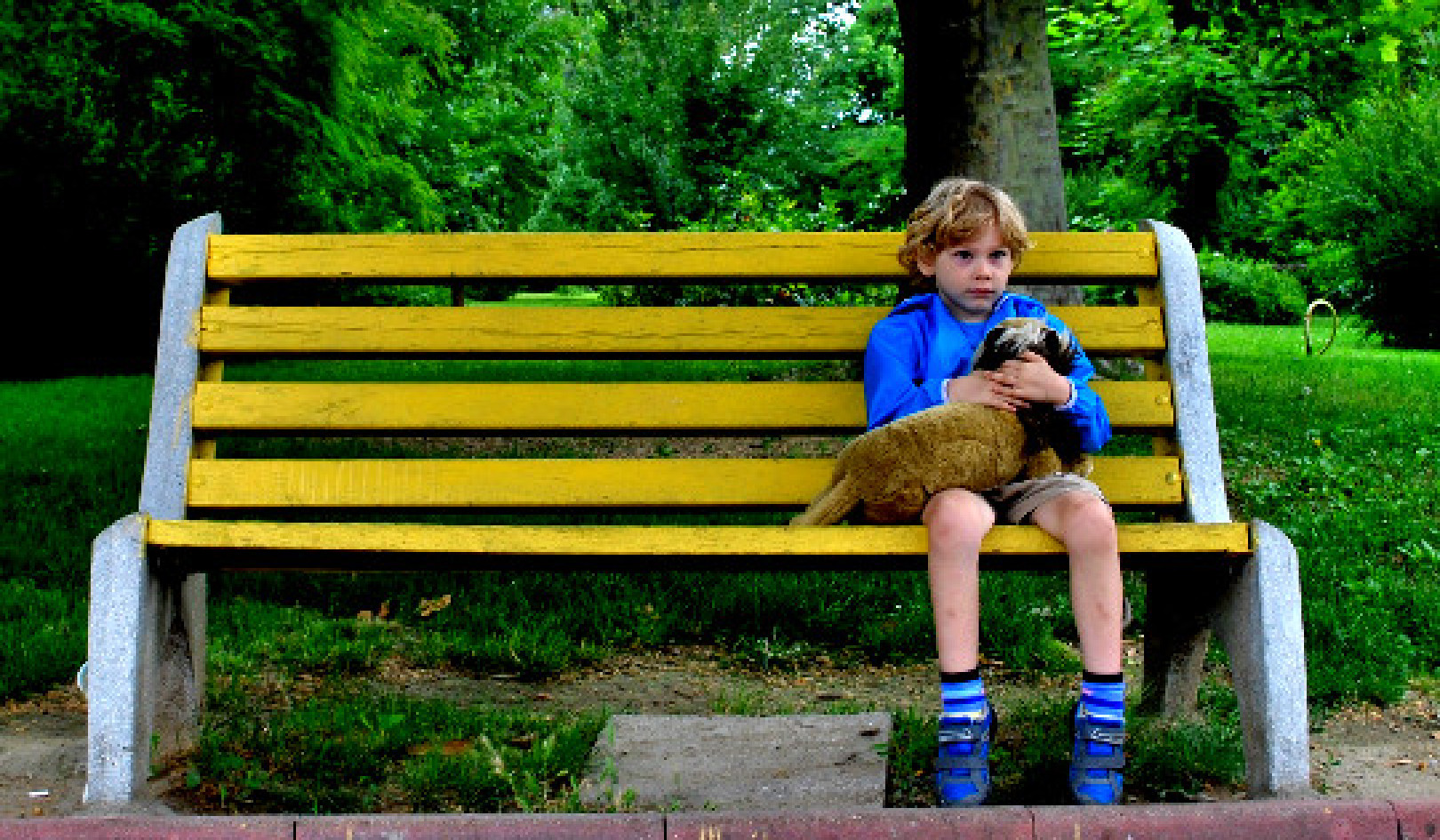
As I felt the benefits of forgiving my ex-husband Werner, I began to look at other grievances and judgments I was holding. Mom was at the top of my list. Could I find my way to forgive her, too? That would require me to mourn the losses of my childhood and let them go. Holding onto my resentment to Mom kept them in place.
Mom passed in February 1998 at the age of ninety-one. I felt some ambivalence but primarily relief. I was glad that she was at peace and that my decades of caretaking had ended. The years of dealing with her unhappiness and tending to her needs had been extremely draining and were finally over.
I have often wondered about that deep look in Mom’s eyes the day of my last visit. She asked me to tell her about the happy times I remembered with her. I had a sinking feeling inside, not knowing what to say. I told her I was grateful for her gentleness, so unlike her mother. I told her that I appreciated her visiting me in Texas soon after I got married, and later in Idaho when I was pregnant, and how I felt her concern for me. I wished I could have been more generous.
For several months after Mom died, I was upset that the nurse had not called me sooner. I was due to return in two weeks and asked the nurse to call if Mom’s condition worsened. Maybe Mom told her not to call. Didn’t she want me there? Didn’t she want to say “good-bye” or “I love you,” or give me the chance to say something more? Was Mom saying good-bye on my last visit, even though I didn’t know it? Perhaps that was the look in her eyes that I didn’t understand.
As years passed I still thought about Mom with sadness. She was a needy woman starving for love, yet she was never filled no matter how much she received. As a child she was emotionally abused, often criticized and punished. As a mother she was incapable of giving much. It used to anger me when neighbors told me what a lovely mother I had. She did not demand from them what she did from Dad and me, relying on us to fill her emptiness. Even though Mom told me she had longed for a girl after Walt was born, I think she wanted a good mother far more. For how can a woman who is still a sad, unhappy child be a nurturing mother?
Mom’s life was primarily in reaction to her mother. Mine was too. Yet when I consider Mom’s life separate from me, I see hers was harder, as she was subject to Baba’s mean and unreasonable whims daily. She was certainly a sensitive and kind child, and I can’t imagine what it must have been like for her. Perhaps longing for mother connection is so primal that children, no matter how old, never get over it. Perhaps it is a loss too great to bear.
The only happy photos I saw of Mom were those taken when she was a legal stenographer before she married. She enjoyed working and looked energized and confident. I think that is how she met my Dad, while working for another lawyer. Mom worked before Walt was born and in Dad’s office beginning when I was a junior in high school. Those days were her best years. Her happiness was always away from home. Through the years of my inner journey, I learned that a woman’s childhood pain is often reactivated when she becomes a mother. Perhaps mothering our own children unconsciously brings us back to our conflicts with our own mothers.
I remember sitting next to Mom at Baba’s funeral. I couldn’t understand why she was weeping bitterly. The rabbi, a stranger to the family, was speaking about Baba being a good woman. The eulogy was so ludicrous that Walt and I started laughing, unable to contain ourselves. During my last pregnancy, Mom asked me to name my baby after Baba if I had a girl. I said, “No!” How could she possibly ask that of me? Because she was so insistent, I agreed to use Baba’s initial in my daughter’s middle name.
When Dad was dying, Mom would not leave him for a moment. She stayed in his hospital room day and night while he was in a coma, and she was with him when he passed. Mom loved Dad deeply, depended on him enormously, and couldn’t conceive of life without him. She was so depressed throughout his illness that she couldn’t eat, losing more than 100 pounds. She looked like a totally different woman.
Mom was hysterical at Dad’s funeral, crying uncontrollably. Several people approached me, asking me to take care of her, showing no concern for my loss.
My Aunt Tillie, Mom’s sister-in-law, stayed with her for a few days after Dad’s funeral. Mom was not capable of living alone, isolated in a New York City apartment. Walt and I finally convinced her to move to Florida where Aunt Tillie lived, with many friends and activities in her building.
Mom didn’t care where she lived. In fact she said she didn’t want to live, but after a while she agreed to move. I made the arrangements and Walt and I took her on the plane, one on each arm. The three of us went shopping to buy what she needed to set up her apartment. She was so numb that she couldn’t make a decision, not even about a toaster. It was scary to leave her, but Aunt Tillie promised she would check in on her daily and keep us posted.
Miraculously, within a month, Mom made friends. A male neighbor accompanied her to help her buy a car. She befriended a handicapped young man at the pool, attracted to him as she was to all people in pain. Eventually he introduced her to his father who was a widower and they started dating. Within months, Mom called to tell me that she was getting married!
Her happiness with her new husband Mike did not last long. She began to put on weight, eventually regaining what she had lost. In a short time Mom began to complain that Mike was forceful, arrogant, and controlling. Although he did everything for her like my Dad did, he wasn’t a good Dad. He was more like her bad Mom. It seemed like all the venomous childhood anger that she had repressed toward her cruel mother came out at him. She put no brakes on pouring out her harsh rage. I think that was the way her mother must have been to her. It was ugly to be around Mom and Mike.
The truth is that all the women in our family were unhappy. Baba was mean and angry, Mom was depressed and helpless, Aunt Rose was doing her best to escape, and I was sad and invisible behind my “good girl” mask. Who knows how many unhappy generations of un-mothered mothers there were in our lineage. I decided that if I were going to break the chain of my troubled history, I needed to let go of my grievances. I needed to forgive Mom.
From Pain to Gratitude
My first step was to let myself feel my buried pain, anger, and resentment. Challenging as that was, the emotional release slowly opened space, allowing me to more deeply grasp what Mom’s life had been. I began to feel compassion for her, seeing her as a hurt child living in a woman’s body. How fortunate that she married Dad, whose pleasure it was to care for her.
I began to see that the degree of unhappiness and dependency Mom modeled was exactly the fuel that ignited me to continually seek and find as much of my authentic self as I have. I wanted to feel more love and peace, it was time to be kinder and focus on her positive qualities. I found many.
Mom was appreciative of what people gave her, often asking for more, yet always grateful. She resonated with others’ suffering and possessed unusual empathy. I inherited her ability to receive, genuinely appreciating gifts and kind attention.
Her qualities of loyalty, perceptive listening, intuition, and sensitivity also live in me, serving me well personally and professionally. It makes me happy to feel gratitude to her and finally be able to say, “Thanks for these priceless gifts, Mom.”
To this day, what makes me most grateful was Mom’s willingness to share me with my Aunt Rose. I wondered why she did that so freely. Was it for Aunt Rose, who wanted a child more than anything? Was it for me to have more mothering than she was capable of giving? Was it to relieve herself? Whatever her motivation, she gave me access to love and attention she couldn’t give. I received it more happily than anything else in my childhood.
Mom was never jealous of the love between me and Aunt Rose. In fact, she encouraged it, happy that we were so close. Maybe Mom saw me as a treasure, a jewel. Perhaps since she and Aunt Rose lived in their misery together, she wanted to share her blessing. Perhaps I was that joy!
The Journey to Forgiveness
I could never have come to this tender place had I not taken my soul selfish journey. How much lighter I feel. Mom did her best by just being gentle—absent but mercifully gentle. I wish I could have given her more acknowledgment. I wish I could have been forgiving while she was alive. It has taken me a long time and much prodding.
Mom never took such a journey. In fact, she died with her pain. I hope my forgiveness is a kindness to both of us. Thinking of her as a spirit, unencumbered by her emotional pain and awkward, heavy body, I see her free and with Dad, where she always wanted to be. I hope so, and that she will be eternally happy.
Article Source
Soul Selfish: The Awakening of a Good Girl
by Jane Wyker
 Jane Wyker’s memoir Soul Selfish shows the way to happiness comes from within instead of looking to others to supply it. Jane remained a ”good girl” into her mid-thirties, bent on pleasing others in the hope of receiving love. This all changed when she embarked on a courageous and passionate inner journey that led her to ownership of her talents, self-reliance and self-love.Through insightful and spiritually uplifting stories, Jane invites us on her passage from “good girl” to empowered woman, as she slays the personal demons that many have yet to confront.Let Jane’s journey inspire the possibility for you to become soul selfish, ever more willing to connect to your truth — your soul.
Jane Wyker’s memoir Soul Selfish shows the way to happiness comes from within instead of looking to others to supply it. Jane remained a ”good girl” into her mid-thirties, bent on pleasing others in the hope of receiving love. This all changed when she embarked on a courageous and passionate inner journey that led her to ownership of her talents, self-reliance and self-love.Through insightful and spiritually uplifting stories, Jane invites us on her passage from “good girl” to empowered woman, as she slays the personal demons that many have yet to confront.Let Jane’s journey inspire the possibility for you to become soul selfish, ever more willing to connect to your truth — your soul.
Click here for more info and/or to order this hardcover book and/or download the Kindle edition.
About the Author
 In her memoir, Soul Selfish: The Awakening of a Good Girl, Jane Wyker shares the vast experience of her 46-year inner journey. Working in over a dozen disciplines, she had the courage and faith to follow the guidance of many teachers and, ultimately, her own soul. Now 82, and still learning, she models a life prioritizing happiness that sources from within. A graduate of Cornell University and former elementary school teacher, Jane was a pioneer in parent education. This led her to her Family Counseling practice that dealt with marriage, parenting, self-development, career and loss. She presented seminars in Fortune 500 companies, raised four children, managed a thriving career and pursued her own spiritual growth. Jane saw that when selfish enough to live from her soul, love and wisdom flow. She believes that is true for all of us. http://janewyker.com/
In her memoir, Soul Selfish: The Awakening of a Good Girl, Jane Wyker shares the vast experience of her 46-year inner journey. Working in over a dozen disciplines, she had the courage and faith to follow the guidance of many teachers and, ultimately, her own soul. Now 82, and still learning, she models a life prioritizing happiness that sources from within. A graduate of Cornell University and former elementary school teacher, Jane was a pioneer in parent education. This led her to her Family Counseling practice that dealt with marriage, parenting, self-development, career and loss. She presented seminars in Fortune 500 companies, raised four children, managed a thriving career and pursued her own spiritual growth. Jane saw that when selfish enough to live from her soul, love and wisdom flow. She believes that is true for all of us. http://janewyker.com/
Related Books
at InnerSelf Market and Amazon

























